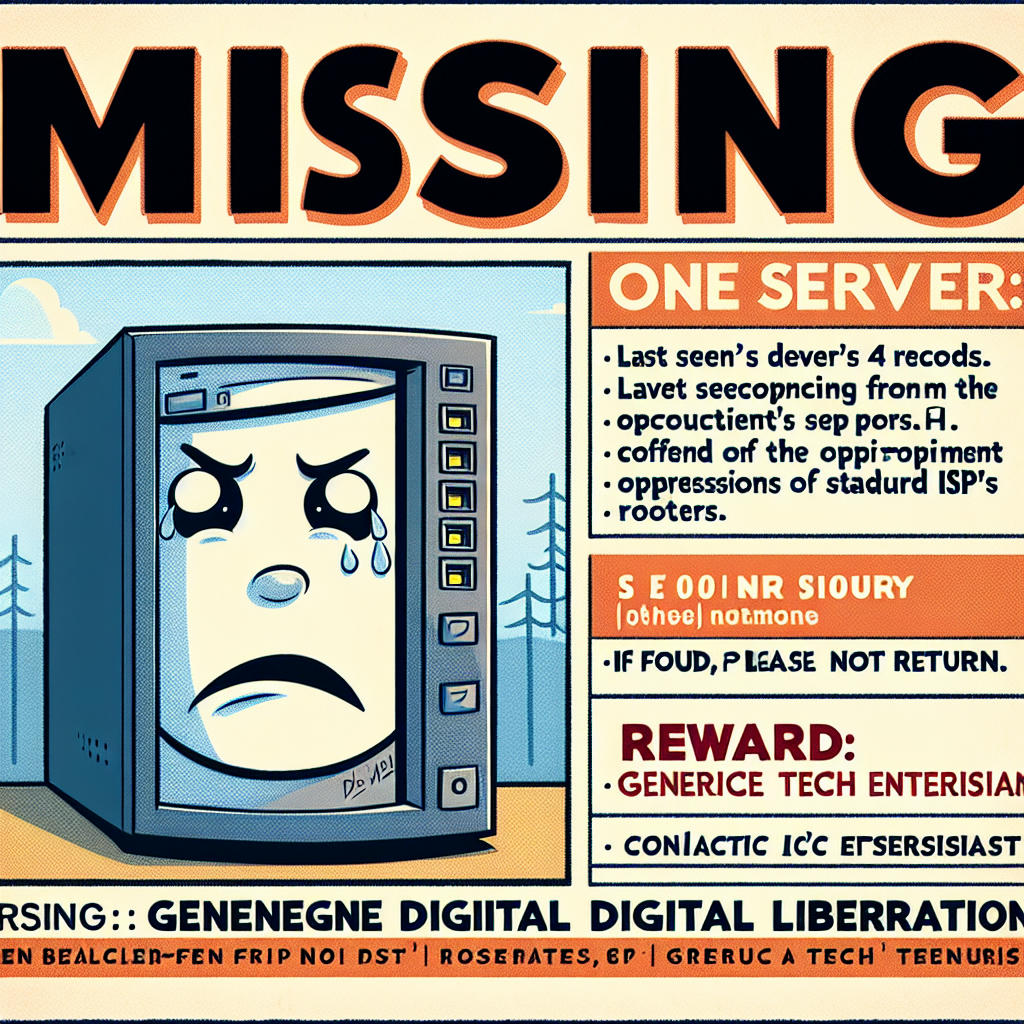In a world where the delete key is mightier than the sword, one man decided to take arms against a sea of IP addresses and by opposing, end them. Meet Jonathan Doe, a minimalist in philosophy and maximalist in action, who decided that his ultimate act of defiance against the mundane tyranny of Internet Service Providers (ISPs) would be something no one dared to dream: deleting his server's IPV4 DNS records in a gloriously reckless display of contempt for the common man and his ISP-provided internet router.
"The common ISP's router is nothing more than a leash,' Jonathan exclaimed, pounding his fist onto the table, 'And I refuse to be tethered! By eliminating my server's IPV4 DNS records, I not only liberate myself but also shield my digital footprint from the prying eyes of Big Data." His voice, infused with the passion of a thousand firewalls, resonated through the halls of the convention center where he had just delivered a lecture on 'The Art of Digital Minimalism.'
In the aftermath of his audacious move, the internet—a wild, untamed digital savannah—was left to ponder: What happens when a virtual address simply... disappears? As news of Jonathan's digital vanishing act spread, ISPs around the globe were catapulted into a frenzy. Customer service lines were inundated with queries about disappearing websites, mysterious 'Page Not Found' errors, and rumors of an internet ‘black hole’ swallowing online content whole.
Experts from the cyber security sector were quickly summoned to shed light on this bizarre phenomenon. Dr. Emily Watson, a renowned digital anthropologist, remarked, 'Jonathan's action is akin to tearing a hole in the fabric of the internet. It's as if he's introduced chaos into a system that prides itself on order and interconnectedness. This, while extraordinarily bold, poses a significant risk to the essential infrastructure that supports our digital lives.'
Meanwhile, enthusiasts and critics alike gathered on forums and social media platforms to debate the merits and demerits of Jonathan's extreme digital cleanse. Some hailed him as a revolutionary, fighting against the digital leash imposed by ISPs. Others condemned him as a reckless anarchist, jeopardizing the stability of the internet for a fleeting moment of glory. Amidst this digital cacophony, one thing became clear: Jonathan had not just deleted DNS records—he had sparked a conversation about digital freedom and the true cost of connectivity.
In a twist of irony, Jonathan's quest for oblivion lead to his own meteoric rise to fame. As debates about digital boundaries and ISP tyranny continue to rage, the legend of the man who dared to 'unplug' in the most literal sense grows stronger. So next time you find yourself cursing at a slow webpage or a 'Page Not Found' error, spare a thought for Jonathan Doe, the unparalleled deletionist, whose defiance of the digital status quo challenges us to rethink our relationship with the internet.

